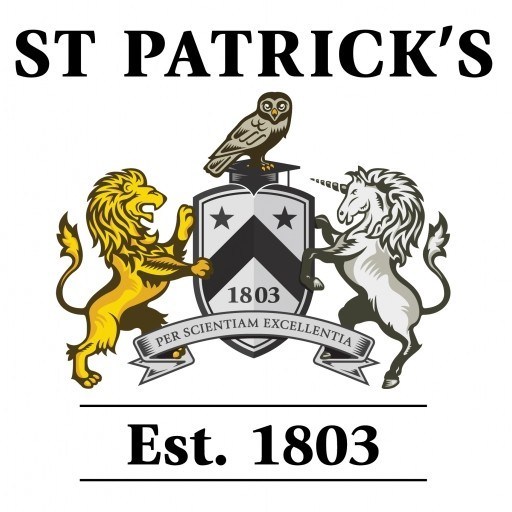Photos of university / #angliaruskin_su
The BA (Hons) in Social Work at Anglia Ruskin University is a comprehensive undergraduate degree designed to prepare students for a rewarding career in social care practice. This program provides a strong foundation in the theoretical and practical aspects of social work, equipping students with the essential skills needed to support and empower individuals, families, and communities facing various social challenges. Throughout the course, students engage with a diverse range of modules that cover key topics such as human development, social policy, diversity and inclusion, mental health, child protection, and ethical practice. The curriculum combines academic learning with practical experience, enabling students to apply their knowledge in real-world settings through placements and fieldwork opportunities. These placements are carefully integrated into the course to ensure students gain valuable hands-on experience, develop professional competencies, and build confidence in their ability to work effectively within multidisciplinary teams. The program is delivered by experienced practitioners and academics who are committed to fostering a supportive learning environment, encouraging critical thinking, reflective practice, and innovative approaches to social work challenges. Students also benefit from comprehensive support services, including academic mentorship, career guidance, and access to industry networks, enhancing their employability upon graduation. The BA (Hons) Social Work degree is accredited by the Health and Care Professions Council (HCPC), which is essential for those intending to register as qualified social workers. Graduates of this program will be prepared for a wide range of roles within social services organizations, healthcare settings, charities, and community groups. They will be equipped with the knowledge, skills, and ethical frameworks necessary to make a positive impact in individuals' lives and to contribute to social justice. This degree serves as a stepping stone towards fulfilling careers in social work, providing both the academic credentials and practical experience required to succeed in this vital and dynamic field.
The Bachelor of Social Work (BSW) programme at Anglia Ruskin University is designed to prepare students for a rewarding career in helping individuals, families, and communities to improve their well-being and overcome social challenges. Throughout the programme, students will acquire a comprehensive understanding of social policies, ethical practice, and the diverse contexts in which social work is delivered. The curriculum combines theoretical knowledge with practical experience, enabling students to develop essential skills such as effective communication, assessment, intervention, and advocacy.
Students will explore topics including sociology, psychology, law, and public health to build a solid foundation for understanding the complex social issues faced by diverse populations. The programme emphasizes ethical decision-making and professional conduct, ensuring graduates are equipped to uphold the highest standards of social work practice. A significant component of the programme involves placements in real-world settings, where students gain hands-on experience working with service users under the supervision of experienced practitioners. These placements are integrated throughout the course to provide continuous learning opportunities and to facilitate the development of practical skills in a variety of environments, such as hospitals, community centers, and social care agencies.
The course is delivered through a blend of lectures, seminars, workshops, and interactive learning sessions, fostering a dynamic and engaging educational environment. Students also have access to a range of support services, including academic guidance, career advice, and opportunities for networking with industry professionals. Upon successful completion, graduates will be eligible to apply for registration with the relevant professional body and pursue careers in areas such as child and family social work, mental health services, substance misuse support, and community development.
Furthermore, the programme encourages a global perspective on social work issues, preparing graduates to work effectively in diverse cultural contexts. With a strong emphasis on social justice, human rights, and anti-discriminatory practice, students will be empowered to make positive changes in society and advocate for vulnerable populations. Graduates will be well-prepared to contribute meaningfully to local communities and to advance their careers in various social work and social care roles.
Entry requirements typically include a minimum of UCAS tariff points equivalent to BBC at A-level or equivalent qualification. Applicants are often expected to have a minimum of five GCSEs at Grade C/4 or above, including English and maths. Prior experience in social care, community work, or volunteering can be advantageous but is not always mandatory. Evidence of competency in communication skills and a commitment to working with diverse populations are important. Applicants may be required to undertake a Disclosure and Barring Service (DBS) check to ensure suitability for working with vulnerable groups. The university favors applicants demonstrating strong interpersonal skills, ethical awareness, and a genuine interest in social justice. International students need to meet IELTS requirements of at least 6.5 overall, with no component below 6.0, or equivalent proof of English proficiency. The selection process usually involves an application review and possibly an interview or personal statement to assess motivation and understanding of the social work profession. Prior academic coursework related to social sciences, psychology, or sociology may be an asset but is not mandatory. The program encourages applications from mature students or those with relevant work experience who meet the academic requirements. Additionally, applicants must demonstrate an understanding of the demands and responsibilities of a social worker and a commitment to ongoing professional development. The university reserves the right to seek references to support the application and to clarify the applicant's suitability for the program.
The financing of the Social Work degree program at Anglia Ruskin University involves a combination of tuition fees, potential funding options, and financial support schemes available to students. Tuition fees vary depending on the student's residency status—home, EU, or international students—and are set annually in accordance with university policy and government regulations. For home students, the tuition fee for the Bachelor of Social Work (BSW) program is typically aligned with the standard undergraduate fees, which may constitute approximately £9,250 per year. International students generally pay higher tuition fees, often ranging between £12,000 and £15,000 per year, reflecting the additional costs associated with international study and services.
Students enrolled in the Social Work program may be eligible for government-funded financial support, such as student loans provided by the Student Loans Company. For undergraduate courses, these loans cover tuition fees and may also offer maintenance support to assist with living costs. The student loan scheme allows eligible students to borrow money to pay tuition fees, which is repayable after graduation once earning above a specified threshold. The repayment terms are income-contingent, usually starting around £27,295 annually, and vary according to income levels. Additionally, students can explore bursaries and scholarships offered directly by Anglia Ruskin University, which aim to support students facing financial hardship, recognize academic excellence, or promote diversity within the student body.
Part-time enrollment options are available, which can help students manage their financial burden by spreading tuition payments over a longer period. Some students may also consider external funding sources, such as grants or sponsorships from social enterprises or charitable organizations dedicated to supporting future social workers. Financial aid offices at Anglia Ruskin University provide comprehensive guidance, helping students understand eligibility, application procedures, and deadlines for available funding schemes. Students are encouraged to research and apply early to maximize their financial support opportunities.
Furthermore, students should consider additional costs associated with the program, such as textbooks, uniforms, travel, and placement-related expenses, which can amount to several hundred pounds per year. The university offers advice and resources on budgeting and financial planning to help students manage these costs effectively. For students involved in placements, some programs may offer travel subsidies or stipends to assist with commuting costs. Overall, the financing structure of the Social Work program at Anglia Ruskin University combines tuition fees, government loans, scholarships, and personal savings, enabling students from diverse backgrounds to pursue their studies and pursue a career in social care and support.
The Bachelor of Social Work (BSW) program at Anglia Ruskin University is designed to prepare students for a professional career in social work, equipping them with the essential knowledge, skills, and ethical understanding needed to support individuals, families, and communities facing various social challenges. The course combines theoretical learning with practical experience, ensuring that graduates are well-prepared for the demands of this vital profession. Throughout the program, students explore core areas such as human development, social justice, legislation and policy, mental health, community development, and diversity. The curriculum emphasizes the importance of ethical practice, reflective learning, and evidence-based interventions to promote positive outcomes for service users.
Students engaging in this program undertake supervised placements in real-world settings, which are integral to their learning experience. These placements provide opportunities to develop essential interpersonal skills, professional judgment, and an understanding of the complexities involved in social work practice. The program is delivered by experienced practitioners and academics who bring a wealth of industry knowledge and research expertise, ensuring that contemporary issues and best practices are thoroughly covered. The university also offers robust support services, including academic advice, career guidance, and access to a network of professional contacts and organizations within the social work sector.
The degree benefits from Anglia Ruskin University's emphasis on employability, with dedicated modules designed to enhance graduate prospects and prepare students for registration with the Health and Care Professions Council (HCPC) as a registered social worker. The course may include opportunities for international exchanges or specialized projects, depending on the academic year and available partnerships. Graduates of the program often go on to work in local authorities, NHS trusts, charitable organizations, and community groups, playing a crucial role in advocating for vulnerable populations and implementing social policies. The program adheres to national standards set by professional social work bodies, ensuring that graduates meet the competence levels required for entry into qualified social work practice.








